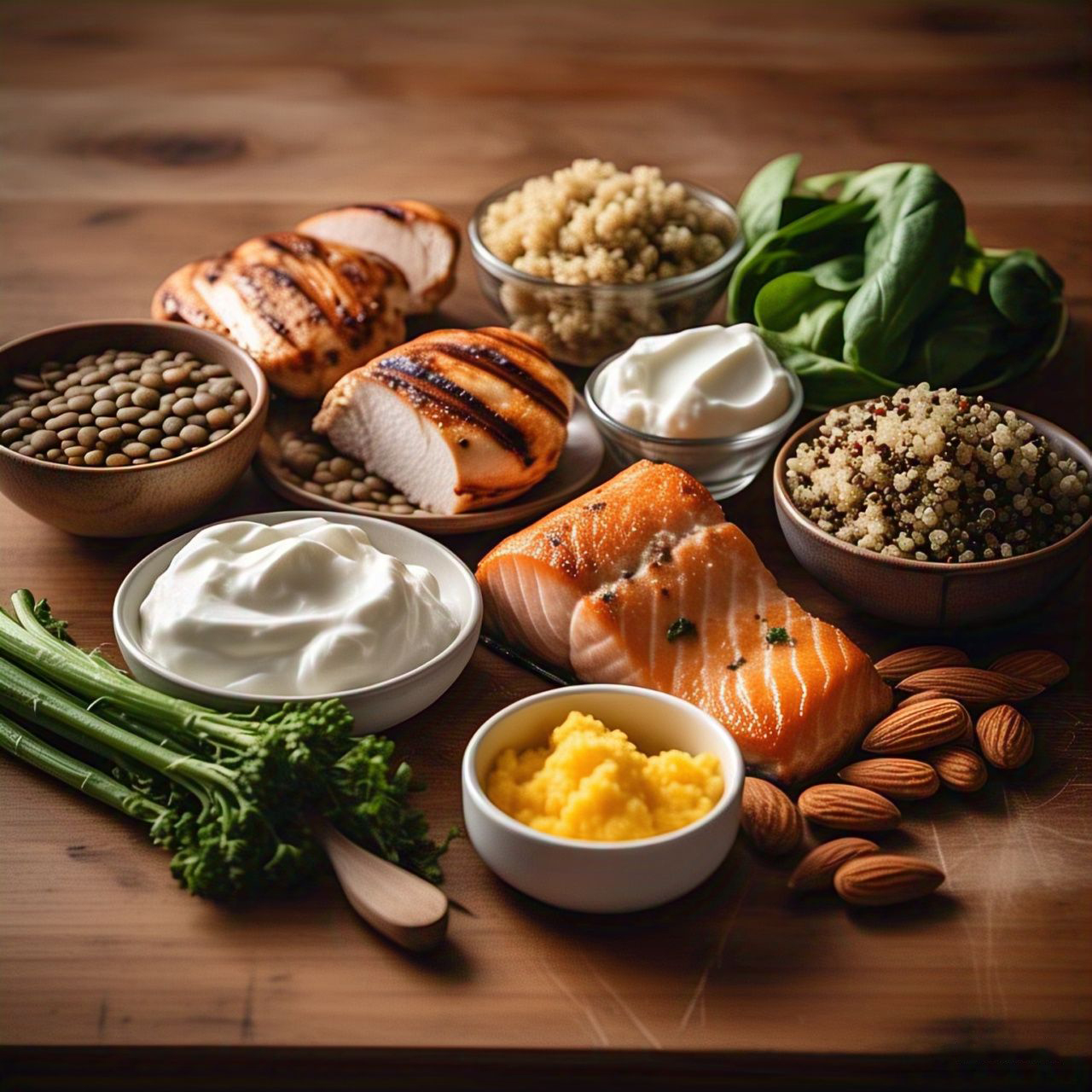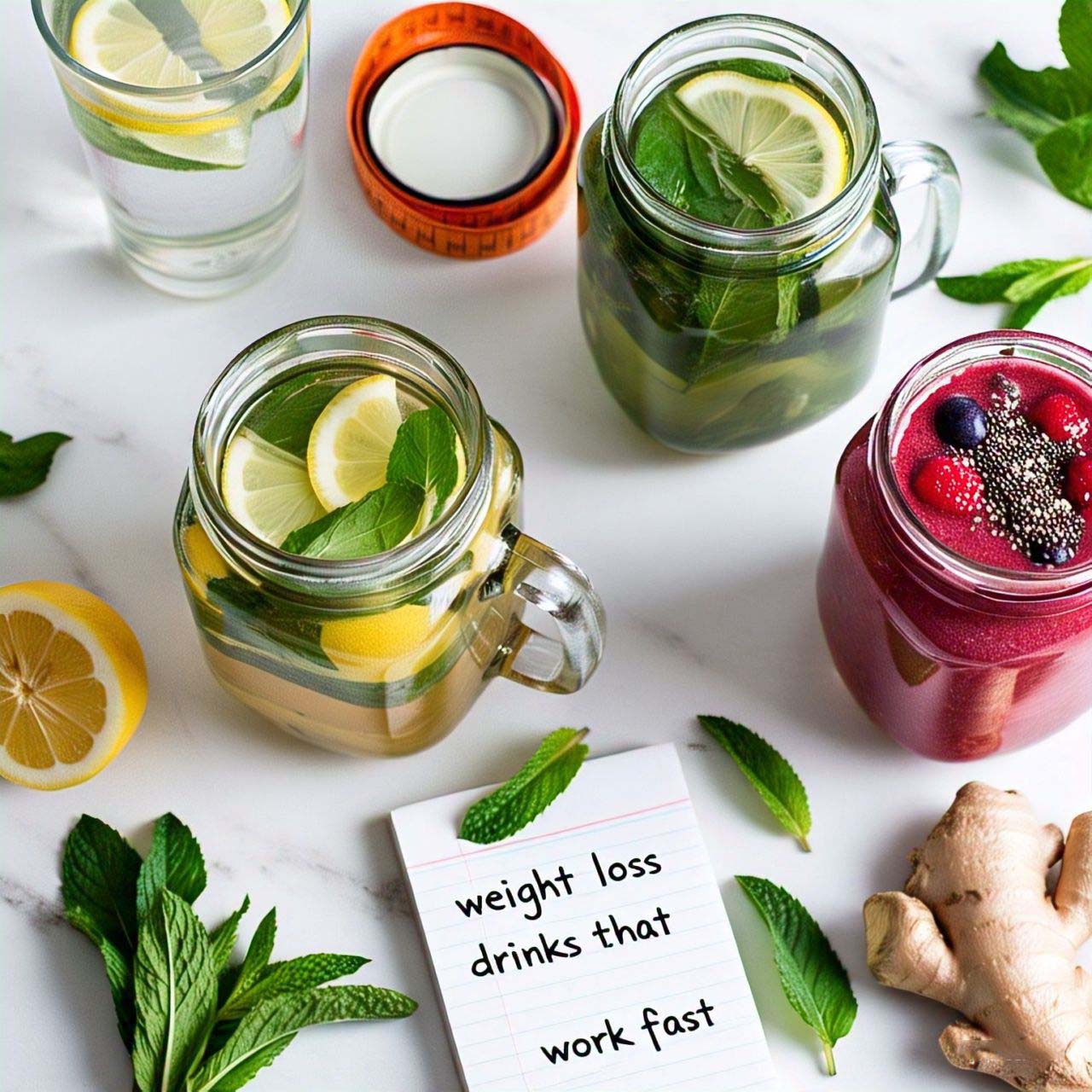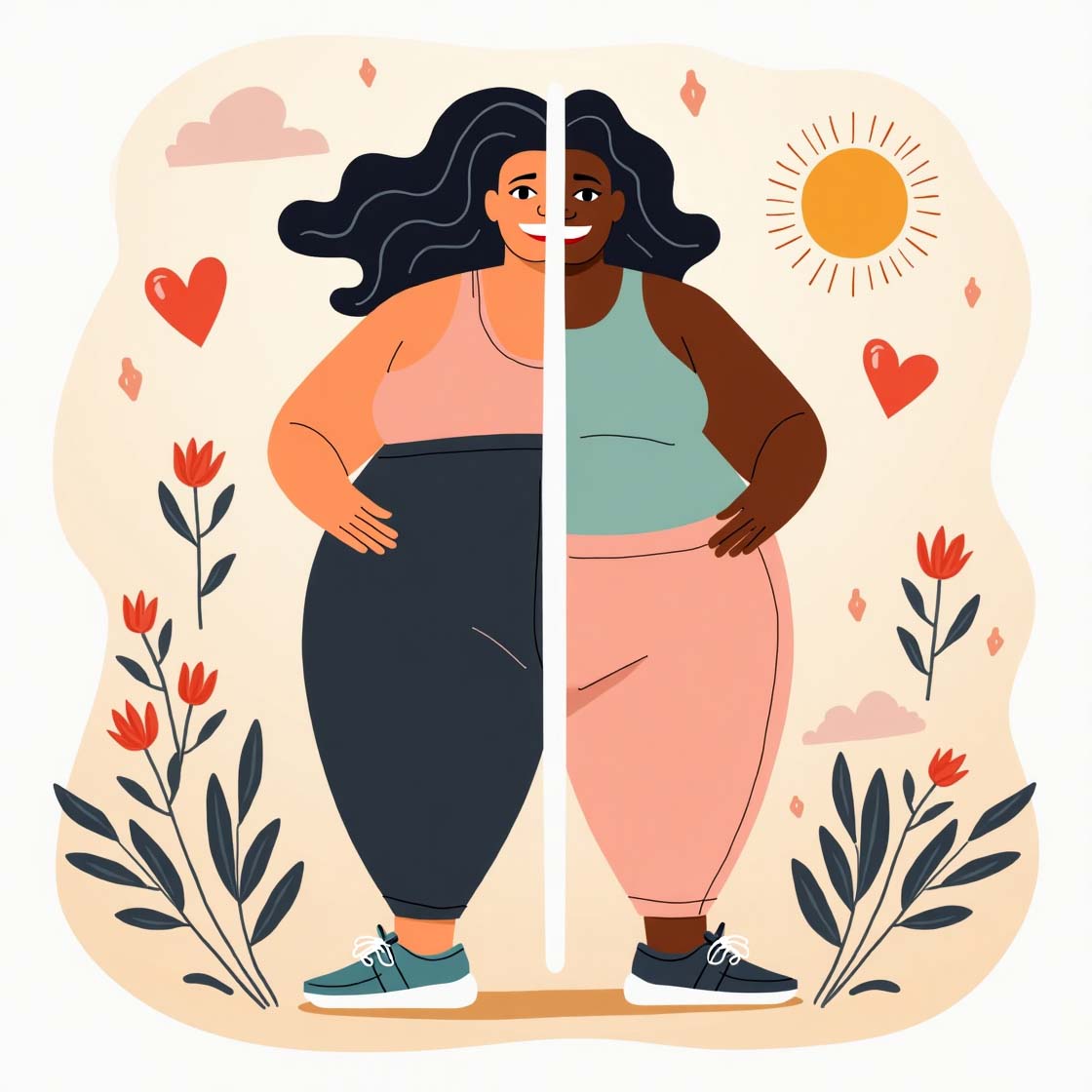Introduction
Losing weight effectively requires a well-balanced diet that supports muscle retention while cutting down on unnecessary fats. High-protein, low-fat foods play a critical role in achieving this goal. This blog explores the best foods to eat and avoid for weight loss, helping you make informed dietary choices.
Additionally, we’ll provide tips on incorporating these foods into your diet and a sample meal plan to ensure you’re fully equipped to make the best nutritional choices.
Why High-Protein, Low-Fat Foods Are Essential for Weight Loss
1. Boosts Metabolism
Protein has a high thermic effect, meaning your body burns more calories digesting it compared to fats and carbohydrates. This helps increase metabolism and promotes fat loss.
2. Preserves Lean Muscle Mass
During weight loss, muscle loss is a concern. Protein helps maintain muscle while reducing fat, ensuring a toned and fit physique rather than just weight loss.
3. Keeps You Fuller for Longer
Protein-rich foods help curb hunger, reducing unnecessary snacking and overeating. This makes it easier to maintain a calorie deficit without feeling deprived.
4. Supports Fat Loss Without Sacrificing Energy
A diet rich in protein but low in fat ensures that you consume quality calories without excess fat storage. It also helps in maintaining consistent energy levels throughout the day.
5. Improves Overall Health
High-protein, low-fat foods not only help with weight loss but also improve heart health, strengthen bones, and support brain function. Choosing the right proteins reduces the risk of chronic diseases like diabetes and hypertension.
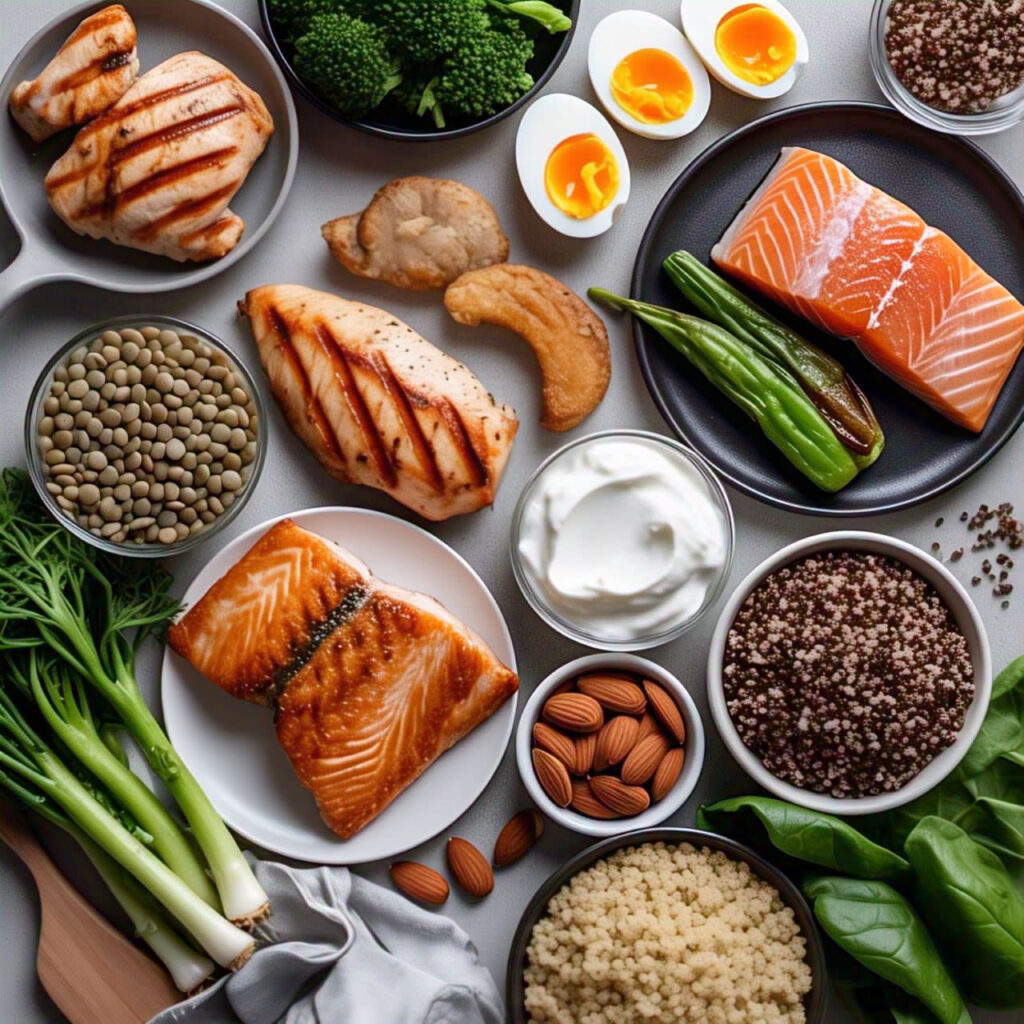
Best High-Protein, Low-Fat Foods for Weight Loss
Here are some of the top food choices that align with a high-protein, low-fat diet:
1. Lean Meat & Poultry
- Chicken Breast (31g protein per 100g, very low fat, excellent for muscle building)
- Turkey Breast (29g protein per 100g, lean and nutritious, great alternative to chicken)
- Lean Cuts of Beef (Sirloin, Eye of Round, Top Round, all rich in protein with minimal fat, great for weight loss)
2. Seafood & Fish
- Cod (18g protein per 100g, minimal fat, great for weight loss)
- Tilapia (21g protein per 100g, affordable and healthy, mild taste makes it versatile)
- Shrimp (24g protein per 100g, high in protein, low in fat, excellent for a high-protein diet)
- Salmon (Rich in omega-3 but moderate fat levels, should be consumed in moderation, helps brain function)
3. Dairy & Dairy Alternatives
- Greek Yogurt (Non-Fat) (10g protein per 100g, excellent probiotic content, good for digestion)
- Cottage Cheese (Low-Fat) (11g protein per 100g, helps in muscle repair, calcium-rich)
- Skim Milk (8g protein per cup, calcium-rich and great for bones, supports muscle function)
4. Eggs & Egg Whites
- Whole Eggs (6g protein per egg, moderate fat, nutrient-dense, perfect breakfast option)
- Egg Whites (3.6g protein per white, almost zero fat, great for lean muscle growth and calorie control)
5. Plant-Based Protein Sources
- Lentils (18g protein per cup, low in fat, high in fiber, supports digestion)
- Chickpeas (15g protein per cup, keeps you full, excellent for making healthy snacks)
- Quinoa (8g protein per cup, contains all essential amino acids, great rice alternative)
- Tofu (10g protein per 100g, great meat substitute, easy to cook)
- Tempeh (19g protein per 100g, gut-friendly and nutritious, rich in probiotics)
6. Nuts & Seeds (In Moderation)
- Almonds (21g protein per 100g, moderate fat, good for heart health, good energy booster)
- Chia Seeds (16g protein per 100g, high in fiber, promotes digestion, excellent in smoothies)
- Pumpkin Seeds (19g protein per 100g, great for snacking and rich in magnesium, supports brain function)
7. Protein Supplements
- Whey Protein Isolate (90%+ protein, low fat, aids muscle recovery, excellent post-workout shake)
- Pea Protein Powder (Ideal for vegans, rich in amino acids, plant-based alternative, supports digestion)
- Casein Protein (Slow digestion, great for overnight muscle repair and appetite control, reduces muscle breakdown)
Foods to Avoid for Weight Loss
1. Processed & Fatty Meats
- Bacon
- Sausages
- Deep-fried chicken
2. Full-Fat Dairy Products
- Whole milk
- Full-fat cheese
- Cream-based yogurt
3. Refined Carbohydrates
- White bread
- Sugary cereals
- White pasta
4. Sugary & Processed Snacks
- Candy bars
- Cookies
- Soft drinks
5. Fried Foods
- French fries
- Fried chicken
- Potato chips
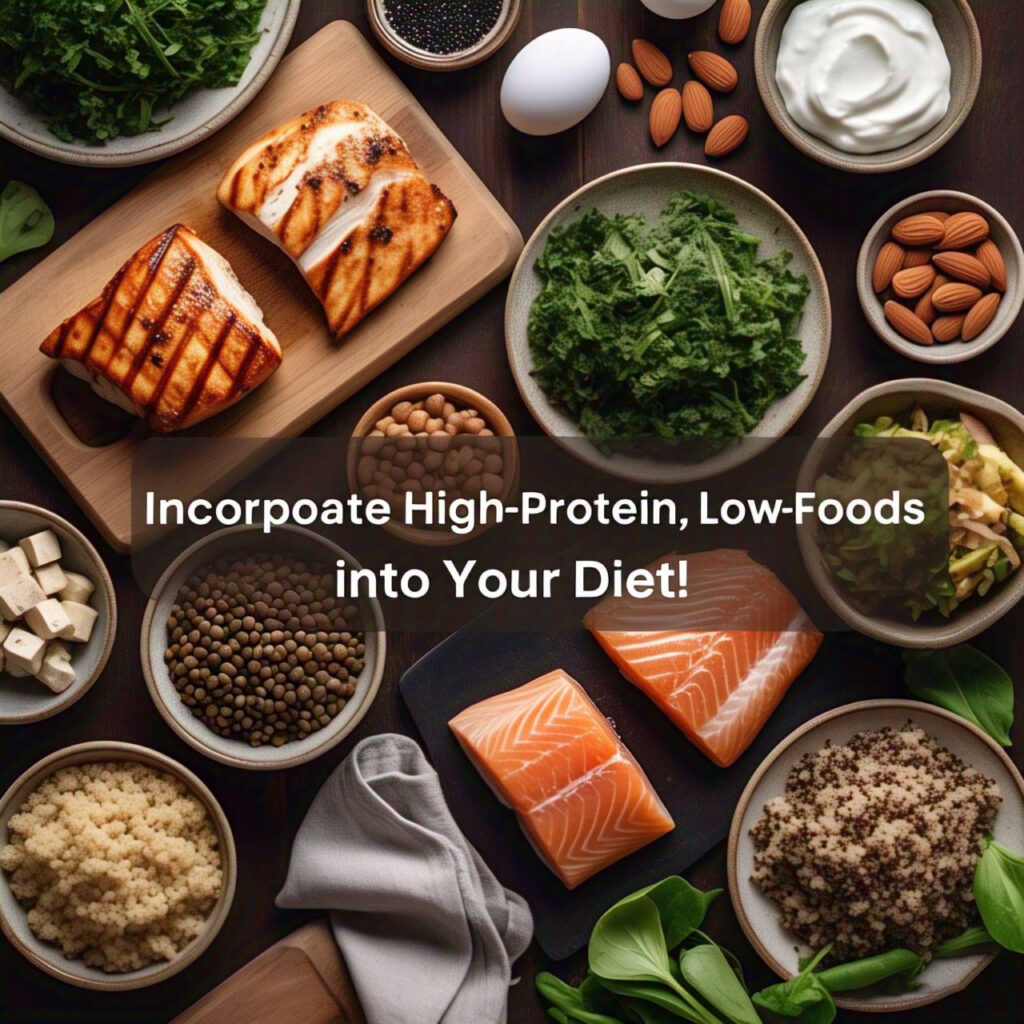
How to Incorporate High-Protein, Low-Fat Foods into Your Diet
1. Meal Prepping
Prepping meals ahead of time ensures you have healthy, protein-rich options available and reduces the temptation to eat unhealthy fast food.
2. Smart Snacking
Choose snacks like Greek yogurt, almonds, or protein bars instead of sugary treats.
3. Balanced Meal Planning
Combine proteins with fiber-rich vegetables and healthy carbs like quinoa or sweet potatoes for a well-rounded meal.
4. Hydration Matters
Drinking plenty of water supports digestion, boosts metabolism, and helps reduce cravings.
5. Cooking Methods
Use baking, grilling, steaming, or air frying instead of deep frying to maintain the nutritional integrity of your food and avoid excess fats.
Sample High-Protein, Low-Fat Meal Plan for a Day
| Meal | Food Options |
|---|---|
| Breakfast | Scrambled egg whites with whole grain toast, Greek yogurt with berries |
| Lunch | Grilled chicken breast with quinoa and steamed broccoli |
| Snack | Almonds with cottage cheese |
| Dinner | Baked salmon with roasted vegetables and brown rice |
| Post-Dinner Snack | A protein shake or tofu with chia seeds |
Conclusion
By choosing high-protein, low-fat foods, you can effectively manage your weight, maintain muscle mass, and support overall health. By planning your meals, avoiding unhealthy foods, and making smart food choices, you set yourself up for sustainable and long-term weight loss. Start incorporating these foods into your daily routine and see the positive changes!

